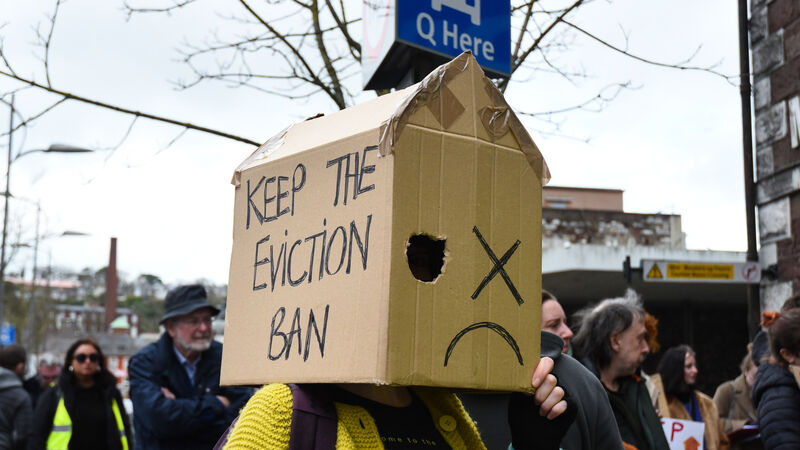Sarah Hamill: Change is coming for the private rental market

A protester during this week's eviction ban protest at Parnell Place in Cork City. The Government seem adamant that the ban will send soon. Picture: Cian O'Regan.
When is an eviction ban not an eviction ban?
Although the Government has made it clear that the ban on no-fault evictions is ending, all hope may not be lost for those affected. A close reading of the latest proposals suggests that, provided certain requirements are met, some tenants may yet be spared from a no-fault eviction.













